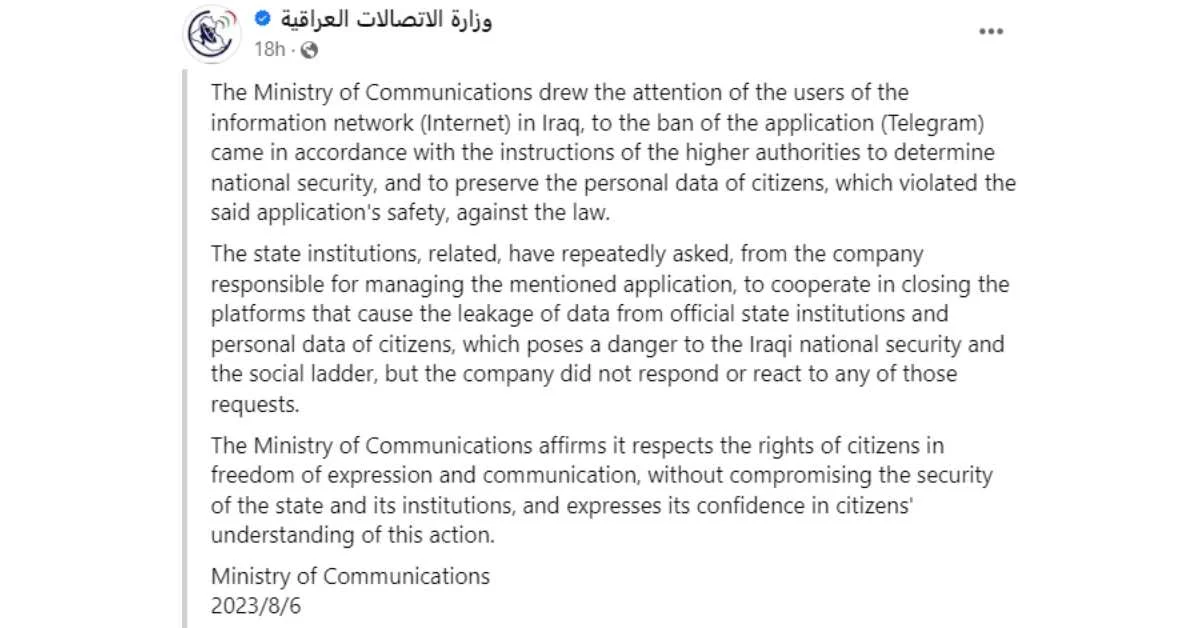On Sunday, August 6, the Iraqi Ministry of Communications declared that the messaging app Telegram had been blocked due to national security concerns. The notification said that this restriction was put in place to protect the integrity of users’ personal data, which the app had allegedly misused.
In its release, the Ministry of Communications indicated that this embargo was imposed in response to recommendations from “higher authorities” to establish national security. They claimed that the communications platform violated safety in an illegal manner. The statement slammed Telegram for apparent failures to react to demands for cooperation, noting:
The state institutions, related, have repeatedly asked, from the company responsible for managing the mentioned application, to cooperate in closing the platforms that cause the leakage of data from official state institutions and personal data of citizens, which poses a danger to the Iraqi national security and the social ladder, but the company did not respond or react to any of those requests.
The Ministry of Communications concluded by saying that it respects the rights of citizens in freedom of expression and communication, without compromising the security of the state and its institutions, and expresses its confidence in citizens’ understanding of this action.
Popular in the area, the encrypted instant-messaging service Telegram is used by politicians, official government agencies, and as a news source. In the media, it was reported that the app has also been connected to militia action throughout the area and that:
“Experts say the app has been crucial in allowing some paramilitary groups to publicise their attacks, including on military bases hosting coalition troops fighting ISIS remnants.”
Take a look at the tweet we have provided to you below-
I imagine the Iraqi militias aren’t going to take the news well. https://t.co/hYbgz5k9zu
— Joe Truzman (@JoeTruzman) August 6, 2023
Check out some other recent articles below:
- Affiliate Marketing with Avapartner: A Step-by-Step Guide
- Ultimate Guide to Improve Student Engagement With AI
This restriction on free speech in online settings continues a recent trend in the area. Amnesty International and Human Rights Watch were among the international groups that issued a Joint Statement in March on the subject of free expression in Iraq. They argued as follows:
Under international human rights law, including Article 19 of the ICCPR which Iraq has ratified, the right to freedom of expression is recognized as a fundamental human right […] Iraqi authorities have an abhorrent track record of repressing the rights to freedom of speech and freedom of peaceful assembly […] Iraqis should be free to express themselves on social media platforms […] These are behaviors protected by international human rights law, which Iraqi authorities are obligated to uphold.

